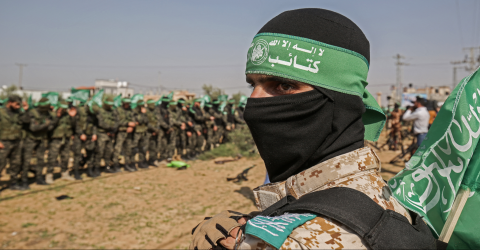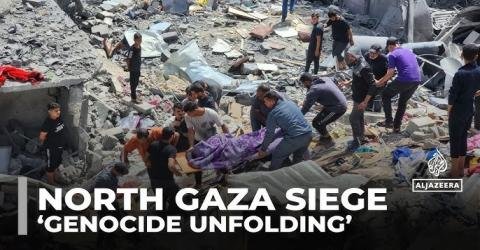Will the US president pressure Israel to allow foreign journalists into Gaza?
Wednesday, October 23, 2024
Israel's restrictions on international journalists have allowed the military to carry out its genocide in Gaza with impunity for more than a year.
Politicians in the US are finally questioning that.
Weeks before Americans elect a new president, dozens of Democrats from the House of Representatives have written to Joe Biden.
They want him to intervene and push Israel for 'unrestricted, independent media access to Gaza'.
Will the US president act?
And how will this play out in campaigning ahead of the November 5 election?
Presenter: Hashem Ahelbarra
Guests:
Laura Albast -- Fellow, Institute for Palestine Studies
Tim Dawson -- Deputy Secretary General, International Federation of Journalists
Ashish Prashar -- US political strategist and former adviser to Middle East peace envoy Tony Blair













